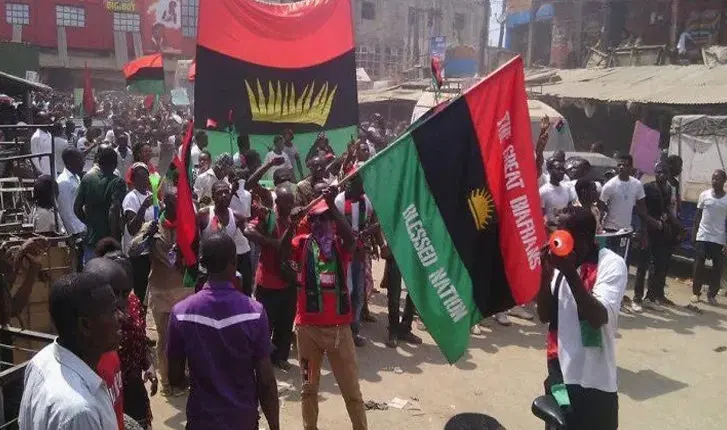Civil Society Organizations (CSOs) and key stakeholders in the South East have urged the Federal Government to prioritize non-kinetic strategies to complement efforts in addressing separatist agitations in the region. This appeal was made during a one-day dialogue titled “Building Trust and Enhancing Civil-Military Relations in Nigeria’s South East Geopolitical Zone,” held in Enugu on Monday. The event was organized by the Security, Violence, and Conflict Research Group (SVCRG) at the University of Nigeria, Nsukka (UNN), in collaboration with the United States Institute for Peace (USIP).
Participants at the dialogue called for the release of Nnamdi Kanu, the leader of the Indigenous People of Biafra (IPOB), as a means to consolidate recent progress in restoring peace and security in the South East. Professor Freedom Onuoha, the Coordinator of SVCRG, highlighted that research conducted by the group indicated that non-military approaches, including Kanu’s release, could foster peace and security in the region. He noted that many locals view Kanu’s continued detention as unjust, further fueling the separatist movement.
Onuoha advocated for strategic dialogue with agitators and the granting of certain concessions to facilitate lasting peace. He also urged South East governors to engage more earnestly with the Federal Government to pursue political solutions that would lead to Kanu’s release and address insecurity and violence in the area.
Professor Chris Kwaja, Country Director of USIP, emphasized the importance of strategic dialogue between the military and separatist groups to enhance civil-military relations in the South East. In his absence, USIP Programme Officer Terfa Hemen encouraged South East governors to listen to their constituents and constructively engage the Federal Government to adopt political solutions to the ongoing crisis.
The dialogue included discussions on measures to strengthen trust and collaboration between the military and local communities to sustain recent improvements in security. Professor Chukwuemeka Nwanegbo, Director of the Institute for Peace, Security, and Development Studies at Nnamdi Azikiwe University in Anambra State, attributed the rise of separatist agitations to governance failures in the region. He criticized the Federal Government’s military approach, arguing that it had transformed peaceful agitations into violent movements. Nwanegbo called for the integration of freedom fighters into peacebuilding processes to achieve long-term stability in the region.

